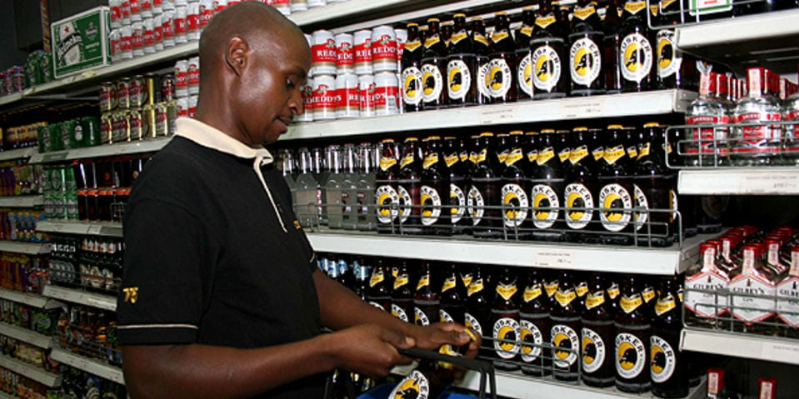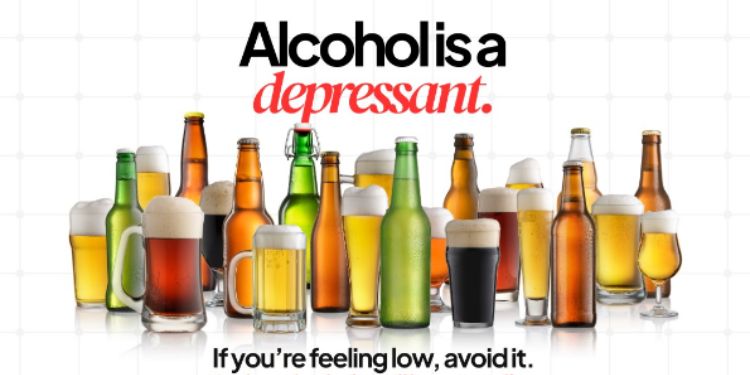The National Authority for the Campaign Against Alcohol and Drug Abuse (NACADA) has clarified that no new bans have been enforced.
In a statement, the Authority explained that the recommendations being circulated, such as the restriction of alcohol advertising, online sales, home deliveries, and celebrity endorsements, are policy proposals and not binding laws.
The proposals were listed under the newly launched National Policy for the Prevention, Management, and Control of Alcohol, Drugs, and Substance Abuse (2025)
“This is a national policy, and contrary to reports suggesting that NACADA has banned certain practices such as alcohol advertising, online sales, home deliveries, and celebrity endorsements, we wish to emphasize that no bans have been introduced.
These measures are currently policy recommendations, not law. Their inclusion aims to initiate legal and regulatory reviews, subject to proper procedures,” stated NACADA CEO Dr. Anthony Omerikwa.
Also Read: NACADA Defends Raising Kenyan Legal Drinking Age to 21
NACADA Explains Next Steps Before Implementation
Dr. Omerikwa added that any proposals requiring legal backing will undergo a transparent and inclusive review process, including public participation.
Further, He asked the media and the public to treat the document as a strategic policy roadmap, not an enforcement directive.
The statement follows panic and uproar from Kenyans after the circulation of several media reports.
The authority explained that although the policy document highlights areas that need reform, it does not carry legal force, and it opens conversations that enable consultations and future legislation.
Also, the next step is the creation of a multi-sectoral implementation framework will include input from government agencies, the alcohol industry, civil society groups, and the general public.
“Any proposal that requires legal backing will undergo a thorough law review process, which will be transparent and inclusive.
“Most importantly, public participation will be central to this process, enabling citizens, businesses, and interest groups to share their views and address any contentious issues before implementation,” the authority stated.
Any changes that require legal backing, such as restrictions on alcohol marketing or delivery models, must undergo legislative scrutiny and public participation before they can be enacted.
Also Read: NACADA Issues Warning to Social Media Influencers
The Authority Defends the Proposals
The authority noted that the policy aims to reduce alcohol and drug abuse in Kenya, especially among the youth, by strengthening prevention, control, and rehabilitation strategies.
It also includes provisions that address cross-cutting issues like mental health, law enforcement, education, and socioeconomic support.
Some of the proposed restrictions include
- Prohibition of alcohol sales in supermarkets, petrol stations, restaurants, residential areas, and toy shops
- A ban on online sales, home deliveries, and courier distribution of alcohol
- Outlawing alcohol sales in public venues such as beaches, parks, amusement parks, medical and sports facilities, as well as transport hubs like bus stops, train stations, and along highways
- Barring alcohol consumption in members’ clubs and hotel dining areas
- Restricting access to alcohol-selling premises to persons aged 21 and above
- Outlawing sale and consumption of alcohol at events involving children
The policy also suggests tougher licensing regulations, including:
- Prohibiting alcohol outlets within 300 metres of learning institutions
- Banning general retail alcohol licences, such as those issued to wines and spirits shops and supermarkets
- Restricting the number of alcohol outlets based on population density
- Outlawing alcohol packaging below 250ml
- Preventing public officers from owning alcohol businesses, even through proxies
County governments will be required to establish local licensing frameworks free from alcohol industry influence and involving community input.
The policy further calls for training of alcohol outlet staff to promote responsible service.
Follow our WhatsApp Channel and X Account for real-time news updates.



















































![Senator Allan Chesang And Chanelle Kittony Wed In A Colourful Ceremony [Photos] Trans Nzoia Senator Allan Chesang With Channelle Kittony/Oscar Sudi]( https://thekenyatimescdn-ese7d3e7ghdnbfa9.z01.azurefd.net/prodimages/uploads/2025/11/Trans-Nzoia-Senator-Allan-Chesang-with-Channelle-KittonyOscar-Sudi-360x180.png)























